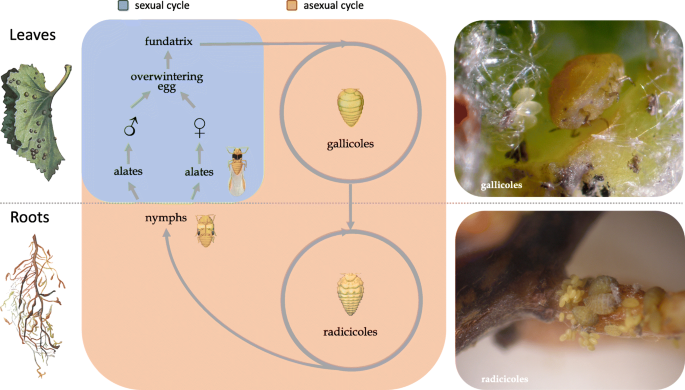An IGNITE-supported paper investigating the invasion of the aphid-like grape phylloxera Daktulosphaira vitifoliae is now available in the BMC Biology Journal.
Biological invasions are known to viciously affect ecosystems, as well as human species and economies, by threatening food production. According to the study, the grape phylloxera Daktulosphaira vitifoliae is one of the few biological pests which affects cultivated plant species to such an extent.

The research has been conducted in collaboration with the International Aphid Genomics Consortium and addresses the evolutionary process shaping the biology of the grape phylloxera organism at a various time-scales. A comparative analysis enabled the observations of ancient evolutionary events between phylloxera and aphids. Further, it has been looked into the patterns of gene expansion along the phylogenetic tree, which provided a better understanding of the process of plant feeding.
By utilising a combination of genome and RNA it has been found that grape phylloxera demonstrates higher duplication rates than its ancestor the aphids. The grape phylloxera genome reveals genetic architecture, almost similar to the one of nutritional endosymbiosis, viviparity, and herbivory. Last but not least, the research article provides an insight into the genome evolution that complements the currently available data of grape phylloxera interactions.
The full paper you can find here.